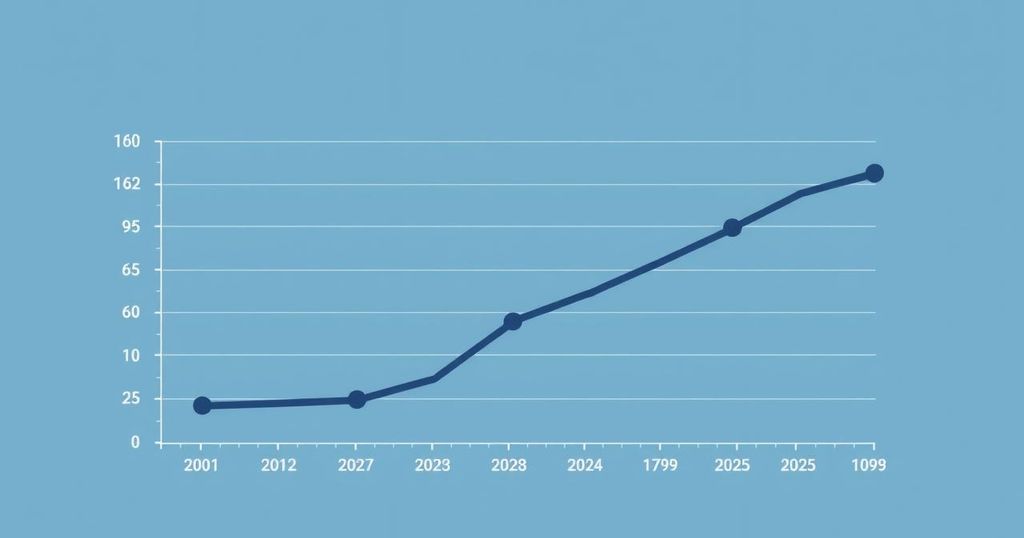Democratic Party’s Favorability Hits Record Lows After 2024 Elections
Recent polls have anonymously revealed the Democratic Party’s favorability plunging to unprecedented lows after the 2024 elections. Both NBC and CNN show dwindling numbers of registered voters speaking positively about the party, raising concerns among party leaders and reflecting a significant struggle in their public image. These ratings signal a critical moment for Democrats as they search for ways to regroup and improve their standing with voters.
Democratic Party Approval Ratings at Record Lows
Recent polls have delivered a stark message regarding the condition of the Democratic Party, with approval ratings plummeting to inexperienced lows following a turbulent 2024 election cycle. According to an NBC News poll, only 27% of registered voters express a favourable view of the party— marking the weakest approval rating registered by this network in more than three decades. On the floor, merely 7% of respondents categorised their perspective of the party as ‘very positive’, which starkly reflects the struggles the party is currently facing in the public eye.
Dissonance in Party’s Voter Base
Similarly, a poll released by CNN mirrored these dismal findings. Only 29% of voters viewed the party positively, the lowest in their records since 1992. Interestingly, among Democrats and their sympathetic independent counterparts, a notable 63% still expressed a favourable opinion of the party. These contrasting figures highlight a dissonance within the party’s base—where they still possess a degree of support but face significant challenges in the broader political landscape.
Internal Party Struggles Amid Political Pressure
In the wake of these low ratings, internal turmoil among Democrats in Congress has grown more pronounced. Just last week, party lawmakers scrambled to prevent a potential government shutdown. The House approved a Republican-led proposal aimed at keeping the government operational, leaving Senate Democrats at a crossroads: either back a plan that bolsters President Trump’s influence or risk a shutdown that could leave many without pay. Ultimately, a faction of ten Senate Democrats chose to align with their Republican counterparts, passing the spending agreement and successfully averting a shutdown.
Challenges of Leadership and Internal Unity
This decision did not come without backlash. Senate Minority Leader Chuck Schumer stood out as a prominent figure facing criticism after announcing his support for the spending deal. Some Democrats are questioning whether Schumer should remain in leadership. The party is in a challenging position, witnessing Republican control over the Senate, White House, and House, which has led to calls for unity among Democrat lawmakers. Senator Sheldon Whitehouse emphasised the need to cease intraparty conflicts in light of the current fight for democracy, warning that disunity equates to a lack of focus on the party’s larger goals.
Voter Sentiment on Party Strategy
Democratic Senator Chris Murphy offers insight into the mindset of party members as they navigate these challenges. While he understands the reluctance to face a government shutdown, he suggested that a shutdown could signal defiance against Trump, a reflection of the party’s resilience in the face of adversity. The current polling indicates that a significant number of Democratic voters, 57%, advocate for party leaders to prioritise resisting the GOP agenda over compromise, showcasing a clear divide among Democratic perspectives in these critical times.
Have the approval ratings for the Democratic Party dropped?
Yes, both polls show a significant decline in approval ratings for the Democratic Party following the 2024 elections, with NBC reporting a low of 27% and CNN showing 29%.
Are Democrats still supportive of the party despite low polling?
While a majority of Democrats still support the party, there is noticeable frustration and division, especially regarding the approach to working with Republicans. Many voters want the party to maintain a stronger position.
What caused the internal struggles among Congressional Democrats?
The internal conflicts within the party were highlighted when Senate Democrats faced difficult choices over government funding. Ten Senate Democrats voted with Republicans, leading to strained relationships within the party.
What are party leaders saying about the need for unity?
Senator Whitehouse and Senator Murphy both highlighted the need for the party to focus on unity and combatting the Republican agenda rather than internal quarrels as a key to improving public perception.
How do Democratic voters feel about compromising with Republicans?
Polls indicated that a significant portion of Democrats preferred to avoid compromise, with NBC reporting that 65% of self-identified Democratic voters wanted their party to stick to its positions, despite the risks of doing so.




